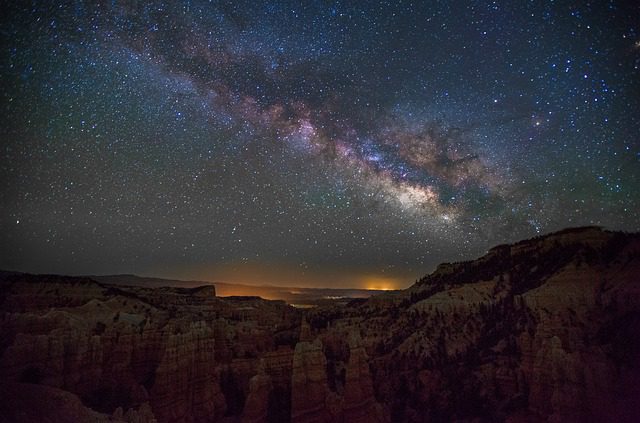He opened up the heavens for us. And he was an atheist.
Stephen Hawking long claimed ambivalence about faith. He said that, while there might in fact be a God, the universe was fully explained by science. Creation did not rely on a Creator, as such. And yet, he spent his whole life looking for answers to our biggest questions about time, space and existence. Even without religious context, he delved more deeply into the “mind of God” than any theologian in our lexicon.
It goes to show, for one thing, that what one person claims as faith and another claims as science, might not be wholly divergent truths. I do not, in any universe (quantum or otherwise) claim to be a science person. Ask my best friend–the chemist–who can only talk to me about what she does in the broadest and most elementary terms. Even then, she has to use crayon illustrations to help me along. And yet, Hawking managed to capture the great mysteries of existence in concepts that even I can understand; language that rings true within the boundaries of my faith in God and an actual created universe. This is largely because my particular faith does not insist on a negation of science… Just as his science did not seek to disprove God. To think that the worlds of science and spirit cannot co-exist is to vastly underestimate the life-potential inherent in both.
It also goes to show that you don’t have to be a person of faith to live a miraculous life.
One of the greatest miracles of his life is that he lived so long, in such a limited physical frame. Diagnosed with ALS in 1963, at the age of 21, he was given just a few years to live. Whether by miracle of nature or nurture, he obviously outlived that prognosis on a grand scale. He once said “my expectations were reduced to zero when I was 21. Everything since then has been a bonus.” Of course he was a person of great intellect–perhaps one of the greatest of all time–and yet, I wonder if it was his physical state that pushed him so deeply into the cosmos, allowing him to unlock its greatest mysteries. Deprived of most mobility and sensory input, his mind and spirit were left free to roam among the stars in ways that even the most brilliant among us could only dream of in healthy bodies.
In this season of Lent, we’re called to think about bodily deprivations in this way… What thing we might give up, however small, that would allow our spiritual selves to be more free, to move more deeply into the mind of God, and to unbind us from the constraints of the physical world? I used to think those small sacrifices were trite; that nothing I could give up would matter, in the grand scheme of things. And maybe that’s true. But I’ve lately come to recognize the significance of any discipline that might awaken us to the limitations of our bodies.
We need the mindfulness of our own mortality, and our smallness in the grand scheme of things, to have healthy relationships with earth and other. But we also need the occasional awakening to the power that our physical desires hold over us. How many of our waking hours are spent thinking about food or sex, a soft pillow or a hot shower? How much of our lives pass away in the pursuit of vice–be it caffeine or alcohol, porn or pills, the next fix for whatever empty space needs filling, right this minute?
I think we all know the answer: much of it. Most of our lives, many of our precious hours. Time collapsing on itself, into a black hole of desire. Maybe the occasional remitting of those desires, whether self-imposed or by some natural design, can push us a little closer to the cosmic truth of our being.
Not that anyone would voluntarily accept the burden of suffering that tied Stephen Hawking’s body to that wheelchair. But his life–and his refusal to go gently into the dark, all those many years ago–goes to show that we need not be so bound by our physical selves. How vast and holy our world can be, even when it seems small and captured by physical circumstance. The choice is ours. Maybe every now and then, for 40 days or so, it wouldn’t kill us to remember that we are dust.
We come from stardust, and we return to stardust. Both science and scripture confirm this fundamental holiness. As Hawking returns to the dust–of the earth, of the cosmos, of time itself–I lift a prayer of gratitude for the sacred mysteries he unlocked for even us mortals. And the ones he left cloaked in darkness so that we can keep searching.













